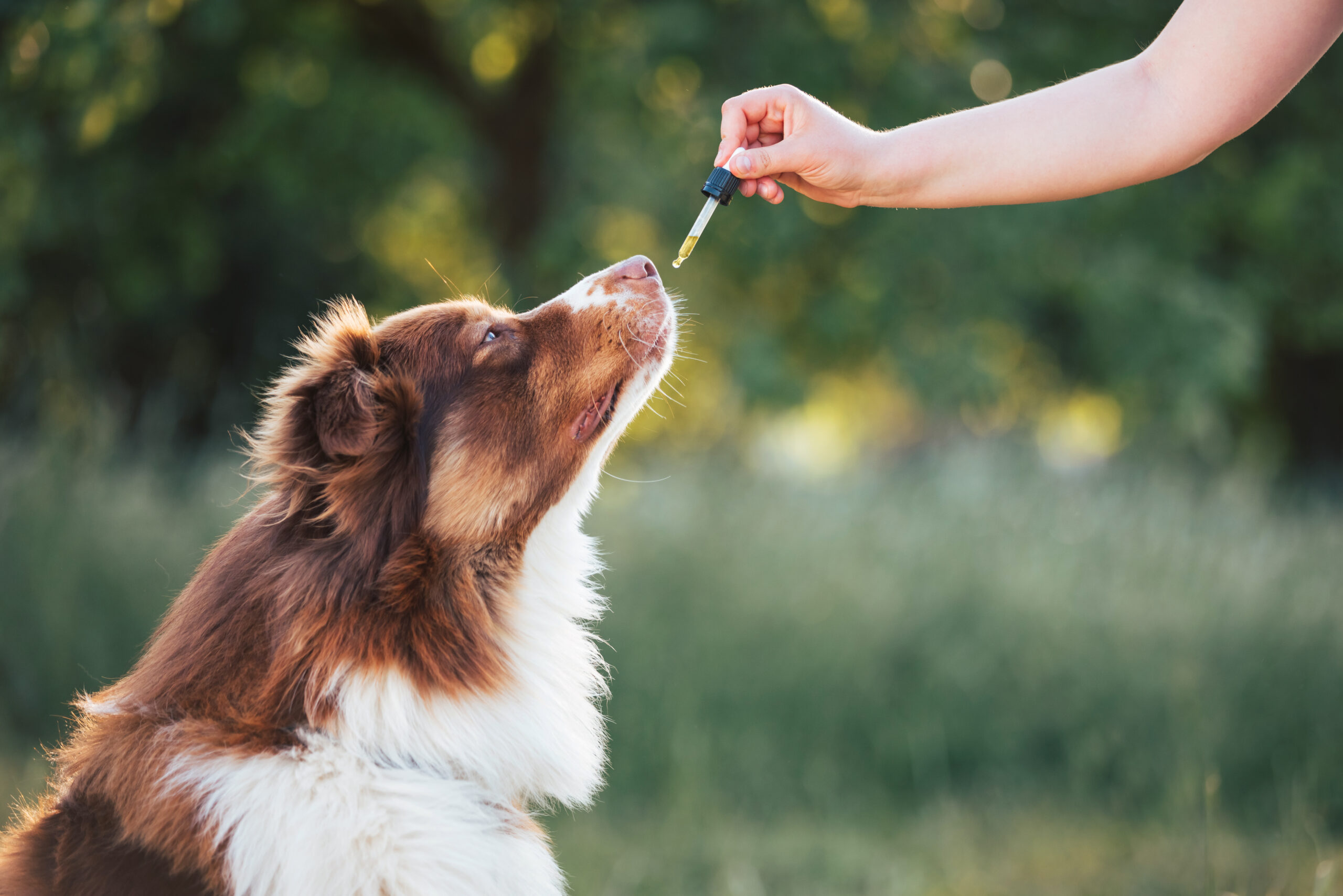The use of CBD (cannabidiol) products for pets is a topic that requires careful consideration. While CBD has gained popularity for its potential therapeutic effects in both humans and pets, it’s important to approach its use with caution.
Click here for more articles on pet health and wellbeing.
Key points about CBD to keep in mind:
- Lack of Regulation: The CBD market for pets is not as regulated as it should be, which means the quality and consistency of products can vary widely. This makes it important to choose products from reputable and transparent manufacturers.
- Consult Your Veterinarian: Before giving your pet any CBD products, it’s crucial to consult your vet. They can provide guidance based on your pet’s individual health conditions, size, and needs. Some pets may have underlying health issues or be on medications that could interact poorly with CBD.
- THC Content: THC (tetrahydrocannabinol) is another compound found in cannabis. It’s the one responsible for the “high” associated with marijuana. It’s important to ensure that any CBD products you consider for your pet contain very low or no THC, as THC can be toxic to animals.
- Species-Specific Considerations: Cats and dogs metabolize substances differently, so a product that’s safe for one species might not be safe for the other.
- Potential Side Effects: Some species may experience side effects such as lethargy, upset stomach, or changes in behavior. Monitoring your pet closely when introducing CBD is important.
- Underlying Conditions: CBD is often marketed as a remedy for various conditions, including anxiety, pain, and seizures. While there is anecdotal evidence of its effectiveness, research in pets is limited.
- Legal and Regulatory Status: The legal status of marijuana products can vary depending on your location.
To make an informed decision about using these types of products for your pet, we recommend discussing it thoroughly with your veterinarian. They can help you weigh the potential benefits and risks based on your pet’s unique circumstances. They’ll also be able to guide you toward safe and appropriate options.
Over $55,000 Paid to Survey Junkie members daily. Sign-Up Today!






